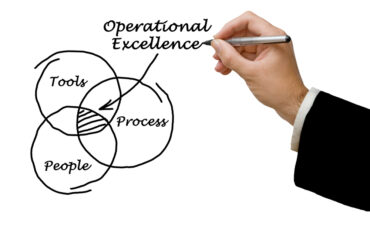
An IEEE survey of 350 CTOs and CIOs found that 5G, digital twins, the metaverse, and more will drive innovations in the new year.
Which cutting-edge areas of technology will be among the five most important in 2023? Global technology leaders surveyed said cloud computing (40%), 5G (38%), metaverse (37%), electric vehicles (EVs) (35%), and the Industrial Internet of Things (33%) will be the five most important areas of technology in 2023.
That’s the takeaway from IEEE’s predictions for hot technology trends in the year 2023, based on the views of 350 chief technology officers, chief information officers and IT directors.
5G technologies will have the biggest impacts in the next year on remote learning and education, telemedicine and entertainment, the study also predicts. 5G “will enable remote collaboration, remote operations, remote management and remote services,” said Bala Prasad Peddigari, a senior member with IEEE. “This will eliminate the physical presence and help to drive cost optimization and improve speed of communication.”
Enhanced by 5G, “the lines between cellular and Wi-Fi will continue to blur as devices make use of available connectivity without the need for user intervention,” adds David Witkowski, also an IEEE senior member.
See also: Private 5G Networks Set to Disrupt Every Industry
One reason 5G is important: Fast data transfer speeds will give users a more immersive experience with fewer lags. “5G’s low-latency technologies enable near-real time representation of images and sound,” says Witkowski.
But wait, there’s more. At the same time the rollout of 5G is underway, the groundwork is being laid for 6G technologies, IEEE finds. Almost all global technology leaders, 88%, agree that 6G will primarily be an evolving work in progress in 2023, but will be standardized within the next five years. “During that time, expect to see new use cases and a broader discussion on the generation’s performance parameters.” the study’s authors predict.
“The process of defining 6G is underway, and there are research efforts for 6G technologies, but I think the majority of development is still pending,” Witkowski said. “We need to realize that each cellular generation partly exists to fix the limitations of the previous generation. In order to understand those limitations, we need to push the 5G network to its limits, but many 5G networks don’t yet have 5G cores. We don’t truly understand the limitations of 5G yet.”
Also emerging are digital twins and the metaverse. Ninety-eight percent of respondents said digital twin technologies will be important in 2023, (including 68% who said very important), to efficiently design, develop and safely test product prototypes and manufacturing processes.
Metaverse is defined by the IEEE report’s authors as “an immersive digital network of 3D interactive worlds.” Connectivity may drive development of metaverse features over the next year, and “connectivity may be more important than hardware when it comes to the metaverse,” the survey shows. When asked to indicate which innovations for advancing the metaverse in 2023 they considered very important, 71% of respondents said 5G and ubiquitous connectivity – higher than VR headsets (58%), augmented reality glasses (58%) and haptic devices that stimulate touch (56%).
Don’t count hardware out, however. “While ubiquitous connectivity will facilitate smoother interactions, advances in computing power are likely to make VR headsets lighter, more energy efficient and ultimately, more comfortable, according to IEEE senior member Eleanor Watson. She noted that high-powered chips in the 3-nanometer and 5-nanometer class may foster better hardware. “This rendering power will enable more sophisticated processing of 3D worlds. But the greatest sticking point in VR is lenses. Plastic lenses are cheap, but ineffective. Bringing the price down could enable a greatly improved experience.”




























